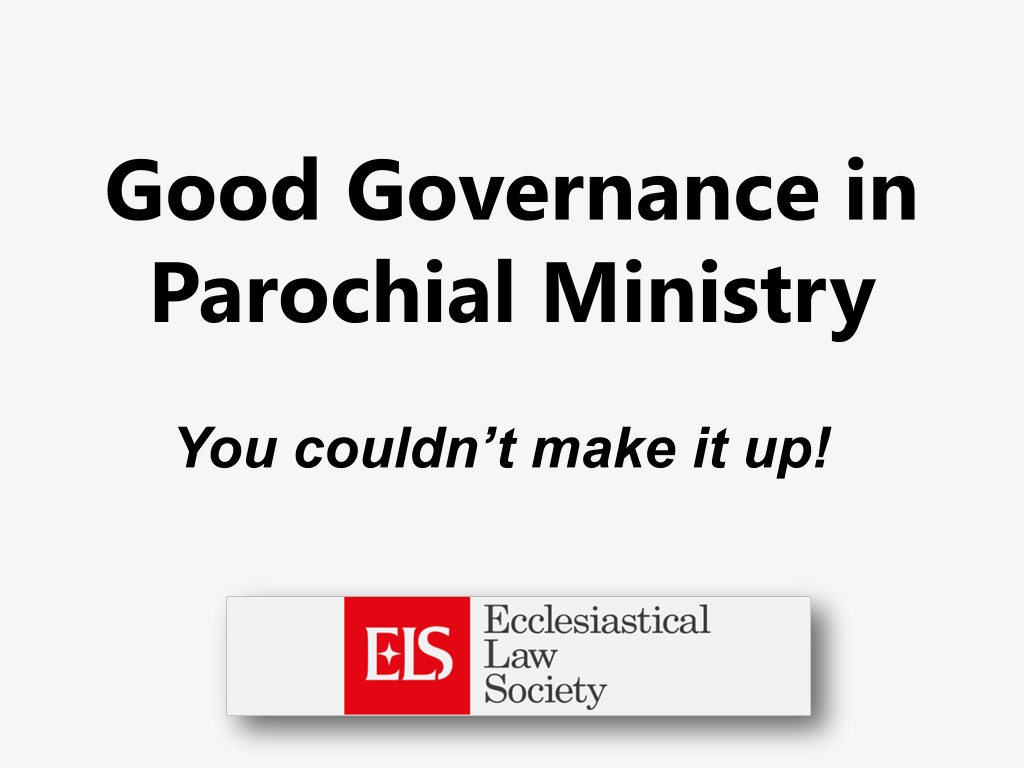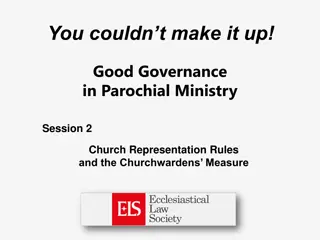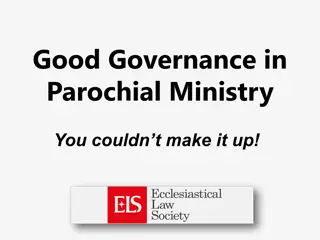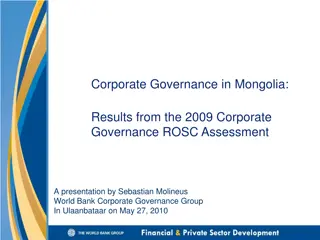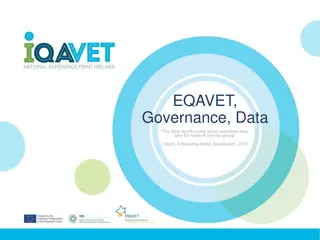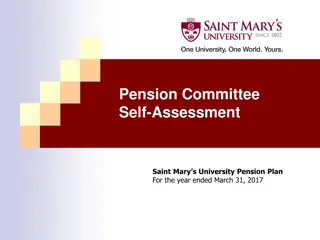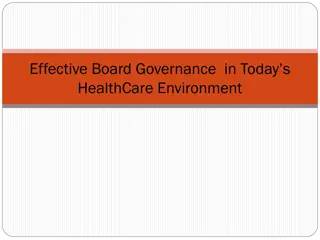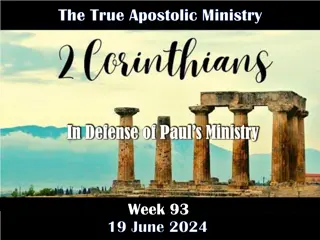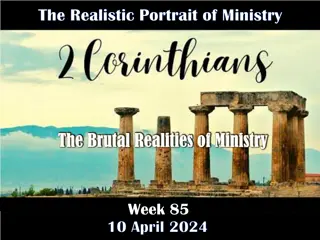Understanding Good Governance in Parochial Ministry
Exploring the important aspects of governance in parochial ministry, including the roles and responsibilities of PCC members as charity trustees, the functions and powers of the PCC, qualifications and disqualifications for PCC members, trustees' duties, and the liability of PCC members. Emphasizes the need for responsible management, compliance with legal requirements, and accountability in carrying out the mission of the Church.
Download Presentation

Please find below an Image/Link to download the presentation.
The content on the website is provided AS IS for your information and personal use only. It may not be sold, licensed, or shared on other websites without obtaining consent from the author. Download presentation by click this link. If you encounter any issues during the download, it is possible that the publisher has removed the file from their server.
E N D
Presentation Transcript
Good Governance in Parochial Ministry You couldn t make it up!
PCC Members as Charity Trustees Louise Connacher Partner, Lupton Fawcett LLP Good Governance in Parochial Ministry
Functions and powers of the PCC Principal function of the PCC: promoting in the parish the whole mission of the Church, pastoral, evangelistic, social and ecumenical Parochial Church Council (Powers) Measure 1956
PCCs as charities All PCCs are charities Registration with the Charity Commission? PCC members are charity trustees responsibility accountability authority and power to act
PCC members - qualifications 16 years old Actual communicant On the Electoral Roll for at least 6 months Not disqualified
PCC members - disqualification Disqualified from being a Charity Trustee Included in a barred list Convicted of an offence listed in Sched 1 Children & Young Persons Act 1933 Disqualified from holding office under s 10(6) Incumbents (Vacation of Benefices) Measure 1977
Trustees duties (1) Ensure your charity is carrying out its purposes for the public benefit Comply with your charity s governing document and the law Act in your charity s best interests
Trustees duties (2) Manage your charity s resources responsibly Act with reasonable care and skill Ensure your charity is accountable Annual Accounts Annual Report Charity Commission guidance The essential trustee: what you need to know, what you need to do
Liability of PCC members PCC members are entitled to meet the PCC s liabilities out of its resources Personal liability arises only where trustees fail to act in accordance with their legal responsibilities as trustees Insurance
Employing PCC members A PCC member can be: employed by the PCC; or receive payment for services provided by the PCC Conditions s7A Parochial Church Council (Powers) Measure 1956 note: no need to obtain Charity Commission approval
PCC members - property Responsibility for the care, maintenance, preservation and insurance of church and goods and ornaments thereof Care and maintenance of any churchyard S4 Parochial Church Councils (Powers) Measure 1956
PCC members property relationships Property in plate, ornament and other moveable goods vested in churchwardens (Canon E1.4) Freehold of the real property of the benefice vested in the incumbent Reflected in the wording of the induction service
Making changes Faculty Jurisdiction: The regulation of the making of changes or alterations to church buildings, their contents and their curtilage https://ecclawsoc.org.uk/education/legal/faculty- jurisdiction/ M. Hill, Ecclesiastical Law (4th ed, Oxford, 2018) pp 7.01-7.137 C. Mynors, Changing Churches, a practical guide to the faculty system (Bloomsbury, 2016)
